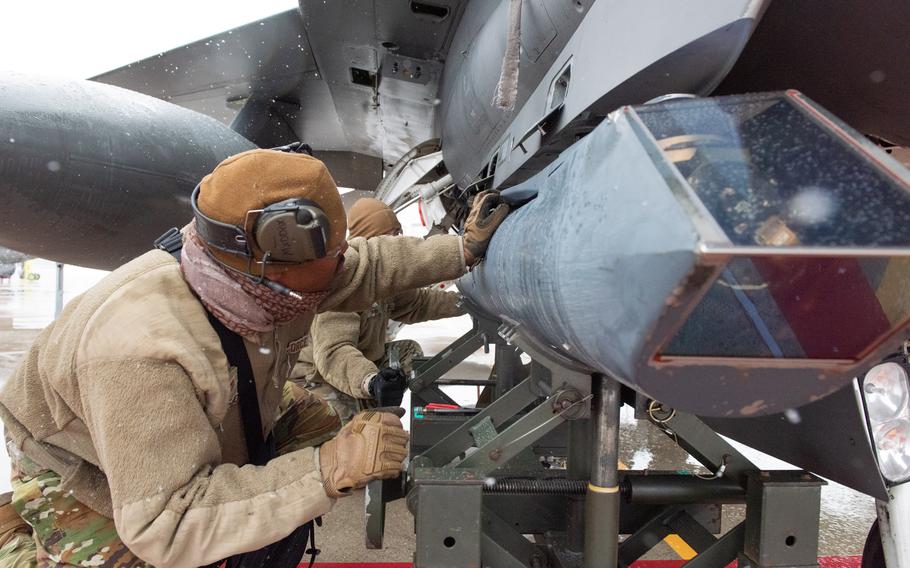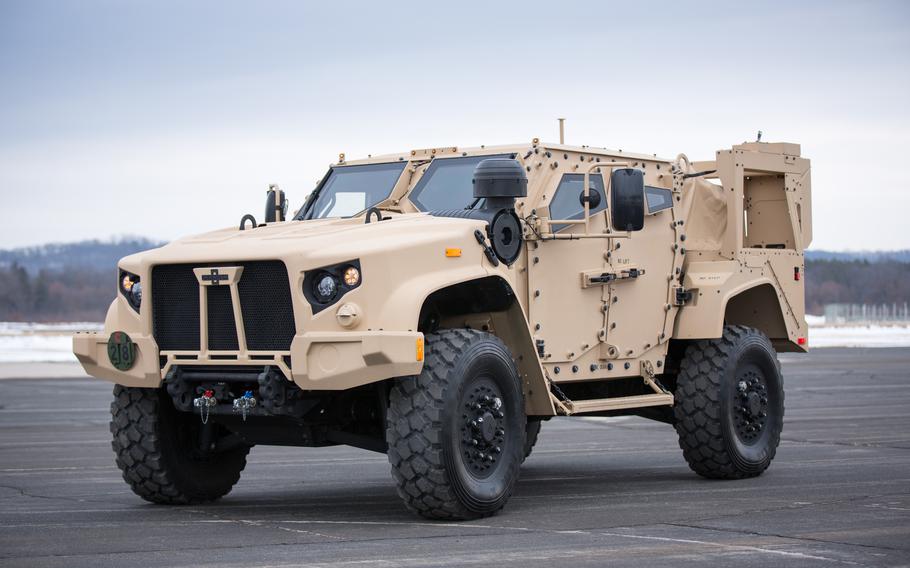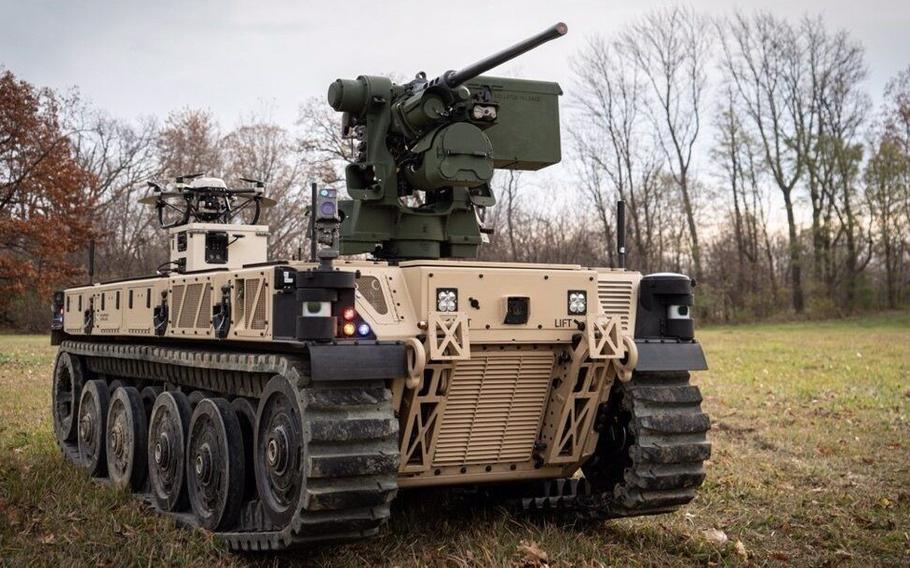
Air Force Staff Sgt. Nate Maddox and Tech. Sgt. Ryan Keel prepare an F-16 Fighting Falcon to receive a Sniper Advanced Targeting Pod in Swanton, Ohio, on Jan. 26, 2023. Poland was recently approved for a $125 million purchase to equip its warplanes with the pods. (Sarah Stalder Lundgren/U.S. Air Force)
STUTTGART, Germany — Poland and Slovakia were greenlighted this week for over $350 million in U.S. weapons sales, giving the two eastern flank allies a boost as countries in Russia’s periphery move forward with their respective military buildups.
The State Department gave initial approval to Slovakia for the sale of modern heavy gun tactical vehicles with an estimated worth of $250 million.
Meanwhile, Poland was approved for Sniper Advanced Targeting Pods to support the addition of warplanes to the country’s arsenal. The value of that sale was nearly $125 million.
“This proposed sale will support the foreign policy and national security objectives of the United States by helping to improve the security of a NATO ally that is a force for political stability and economic progress in Europe,” the State Department said in a statement.

A Joint Light Tactical Vehicle is on display at Fort McCoy, Wis., in 2018. Slovakia is seeking to buy 192 JLTVs as part of a military equipment upgrade that the State Department called a major milestone for the European country. (John Russell/U.S. Army)
Official notification of the plans was submitted to Congress, which typically approves such transactions as a matter of course.
Since Russia’s full-scale invasion of Ukraine in February 2022, many U.S. allies in Eastern Europe have been ramping up spending on an array of weapons systems.
Poland in particular has been on a spending spree, adding weaponry ranging from Abrams tanks and Apache attack helicopters to F-35 fighter planes. Warsaw also has been in the market for numerous South Korean-made systems, including FA-50 fighter jets.
The sale of the sniper pods would improve the tactical effectiveness of FA-50 fighters by enhancing their ability to identify and target enemy positions from a greater distance, the State Department said.

This robotic combat vehicle is equipped with an M153 remotely operated weapons station. Slovakia aims to acquire several of the weapons stations along with a wide range of machine guns and other gear to outfit a fleet of newly purchased Joint Light Tactical Vehicles. (Michigan National Guard)
Slovakia is acquiring 192 M1278A1/A2 heavy gun carriers joint light tactical vehicles and M153 remote weapons stations. The purchase also involves machine guns and other gear to build out the tactical vehicles.
The sale will enable Slovakia to divest itself of Russian-produced gear and replace Soviet-era personnel carriers.
“Procurement of the JLTV would represent a major milestone in Slovakia’s goal of developing a capable 21st-century military which can meet its national defense needs and effectively contribute to NATO operations,” the State Department said.